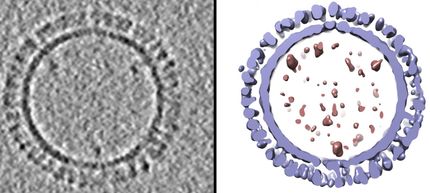Dow and Plant Research International to Collaborate On Therapeutic Glycoprotein Production in Plants
The Dow Chemical Company and Plant Research International B.V. of Wageningen, The Netherlands, have agreed to join forces to speed development of therapeutic proteins with mammalian-like glycan structures in transgenic plants. Through their collaboration, the companies will work to expand the utility of plant-based production for pharmaceutical proteins.
"Dow is delighted to be working with Plant Research International, an innovative leader in glycoprotein optimization in transgenic plants," said Kurt Hoeprich, Director of Market Development for Dow Plant-Based Biopharmaceuticals. "By optimizing glycoprotein production in plants, we can greatly expand the applicability of this new production platform in the rapidly growing biopharmaceutical marketplace."
According to industry research by a financial analyst from U.S. Bancorp Piper Jaffray, Inc., approximately 100 therapeutic proteins are now in mid- to late-stage clinical development. Potential manufacturing capacity shortages are leading pharmaceutical companies to consider plant-based production techniques.
Dirk Bosch, group leader at Plant Research International explains: "We are very pleased with this excellent match of Dow's proprietary expression technologies and biopharmaceutical protein processing expertise with Plant Research International's proven, integrated R&D capabilities for biosynthetic pathway engineering and protein analysis. This agreement will accelerate scientific developments at our institute and will place us in a position to help generate additional technological breakthroughs relevant to therapeutic protein production. Dow is a major player, with complementary skills and networks which support our ambition to use our expertise to benefit the pharmaceutical industry."
The agreement calls for Dow and Plant Research International to share their intellectual property estates in the field of glycosylated protein production in transgenic plants. Dow will lead commercialization of this exclusive technology for the therapeutic protein contract manufacturing market. Earlier this year, Dow secured patents on technology to enable glycan production in plants, which it will make available under this agreement. The agreement also involves a multi-year collaborative research program focused on further optimizing protein glycosylation in transgenic plant systems.
Dow also has agreements in place with Epicyte Pharmaceutical Inc., a biopharmaceutical company focused on the discovery and development of therapeutics to treat inflammatory and infectious diseases, and Centocor, Inc., to produce monoclonal antibodies in transgenic plants. According to Hoeprich, "This group of strategic agreements aligns key technology leaders toward fulfilling the promise of plant-based approaches to drug substance supply. Beyond overcoming the well-reported capacity limitations in the biopharmaceutical industry, a plant-based approach also holds the potential to lower capital and operating costs."
Topics
Organizations
Related link
Other news from the department business & finance

Get the life science industry in your inbox
By submitting this form you agree that LUMITOS AG will send you the newsletter(s) selected above by email. Your data will not be passed on to third parties. Your data will be stored and processed in accordance with our data protection regulations. LUMITOS may contact you by email for the purpose of advertising or market and opinion surveys. You can revoke your consent at any time without giving reasons to LUMITOS AG, Ernst-Augustin-Str. 2, 12489 Berlin, Germany or by e-mail at revoke@lumitos.com with effect for the future. In addition, each email contains a link to unsubscribe from the corresponding newsletter.
Most read news
More news from our other portals
See the theme worlds for related content
Topic world Antibodies
Antibodies are specialized molecules of our immune system that can specifically recognize and neutralize pathogens or foreign substances. Antibody research in biotech and pharma has recognized this natural defense potential and is working intensively to make it therapeutically useful. From monoclonal antibodies used against cancer or autoimmune diseases to antibody-drug conjugates that specifically transport drugs to disease cells - the possibilities are enormous

Topic world Antibodies
Antibodies are specialized molecules of our immune system that can specifically recognize and neutralize pathogens or foreign substances. Antibody research in biotech and pharma has recognized this natural defense potential and is working intensively to make it therapeutically useful. From monoclonal antibodies used against cancer or autoimmune diseases to antibody-drug conjugates that specifically transport drugs to disease cells - the possibilities are enormous
Topic world Protein analytics
Protein analytics provides a deep insight into these complex macromolecules, their structure, function and interactions. It is essential for discovering and developing biopharmaceuticals, understanding disease mechanisms, and identifying therapeutic targets. Techniques such as mass spectrometry, Western blot and immunoassays allow researchers to characterize proteins at the molecular level, determine their concentration and identify possible modifications.

Topic world Protein analytics
Protein analytics provides a deep insight into these complex macromolecules, their structure, function and interactions. It is essential for discovering and developing biopharmaceuticals, understanding disease mechanisms, and identifying therapeutic targets. Techniques such as mass spectrometry, Western blot and immunoassays allow researchers to characterize proteins at the molecular level, determine their concentration and identify possible modifications.



















































